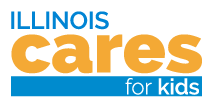All children grow and develop at their own pace. However, some children may have developmental delays like autism spectrum disorder (ASD) that change the way that they learn, grow, and interact with the world around them.
Some signs of autism can be seen very early in life. Because of this, it’s important to learn what signs to look out for. This makes sure that you can get your child the support they need as early as you can. The sooner you recognize potential signs and get your child evaluated, the better their care can be.
Here are some of the most common signs of autism to recognize.
What is Autism?
Autism spectrum disorder (ASD) is a developmental disability that can begin when a child is very young. In fact, some children with ASD can start showing signs as young as 12-18 months or even earlier.
People with autism communicate and interact with people around them differently. Autism can also make people sensitive to some sensory stimuli (in other words, sounds, sights, temperatures, feelings and smells). Some people with ASD may also repeat behaviors or become very focused on their special interests.
There are several reasons that a child’s risk for ASD can increase, like their family histories or their environment. This means that children may be more at risk of ASD if they have a brother or sister with ASD, have certain conditions that affect their genetics, or experienced complications at birth.
There is also no cure for autism. However, early intervention and treatment can help better manage autism.
Common Early Signs of Autism in Young Children
Some children can begin showing signs of autism in their early years. It’s important to know some of the most common signs.
If you notice that your child is showing some of these early signs of autism, talk to your pediatrician as soon as you can so they can screen your child.
Socializing and Communication
- Doesn’t use eye contact to communicate with you or to get your attention
- Often won’t respond to their name being called
- Won’t use facial expressions or hand gestures to communicate with you (ie: doesn’t return smiles or waves, won’t shake their head “yes” or “no”)
- Doesn’t want to play games with others or play pretend
- Won’t start playing with other children or doesn’t want to be around them
- Delayed speech or movement skills
Behaviors and Interests
- Likes having the same routine, and may get very upset at any changes
- Intense, obsessive interests in certain toys, characters, animals, etc.
- Repetitive play, behaviors, and/or speech (ie: saying the same words over and over again)
- Making strange movements or sounds like flapping hands, spinning, walking on tip-toes, rocking back and forth, etc.
Sensory Reactions
- Strongly dislikes certain sounds, smells, tastes, or feelings (ie: certain textures, foods, bright lights, etc) and avoids them whenever possible
- Might respond to these sounds, smells, tastes, or feelings by “stimming” (repetitive movements, fidgeting)
- May not notice other sensations like hunger or pain
- Repetitive touching of objects or other people, making loud noises
What to do if you think that your child may have autism
If you have concerns about your child’s development, talk to your doctor as early as you can.
The earlier you act, the better. Early intervention can help your child learn new skills and increase their success. It’s also important because they might have other health problems that need to be looked at.
Early intervention includes things like speech and physical therapy to help with your child’s development. Because their brains are still forming during this preschool age, these services can help your child develop important skills that they’ll need later in life.
If you notice any of the above signs and think that your child might have autism, ask your pediatrician for a developmental screening. During these screenings, your child’s doctor or another healthcare professional may ask you to complete a questionnaire or checklists. This will help them understand which milestones, behaviors, movements, and language needs your kids have. Your doctor may also have you go to another specialist like a developmental pediatrician or child psychologist, who can also help.
In addition, you can also reach out to Illinois’ Part C Early Intervention Program. This program can help evaluate your child’s needs if they have a developmental disability. It also gives your family a service plan based on your child’s needs, which can give you support through your child’s development. Click here to learn more about the Illinois Early Intervention Program.
Examples of what Early Intervention Programs can look like
ASD can look different for every child. This means that there is no one-size-fits-all treatment plan. Some common services and therapies that are used in early intervention programs include family training, speech therapy, hearing impairment services, physical therapy, and nutrition services.
Key Takeaways
When it comes to your child’s development, knowing what milestones and behaviors are normal during their age can make a huge difference in how you monitor them. If you notice any of the signs of autism, get them screened as soon as possible. Intervening as soon as you recognize the signs can ensure that they get the right support they need and reach their full potential as they continue to grow.


